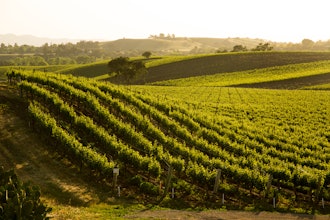
BRUSSELS (AP) — A major European Union plan to better protect nature in the 27-nation bloc and fight climate change was indefinitely postponed Monday, underscoring how farmers' protests sweeping the continent have had a deep influence on politics.
The deadlock on the bill, which could undermine the EU's global stature on the issue, came less than three months before the European Parliament election in June.
The member states were supposed to give final approval to the biodiversity bill on Monday following months of proceedings through the EU's institutional maze. But what was supposed to be a mere rubber stamp has now turned into its possible perpetual shelving.
"How could we give that up? How could we say 'We decided not to restore nature,'" a disappointed Irish Environment Minister Eamon Ryan said. "Not deliver on the protection of biodiversity is a shocking statement to the rest of the world," he added, urging diplomatic pressure so that the bill could belatedly still be approved.
The chances of that happening weren't looking good.
"It is clear to everyone that there is this huge deadlock. And it is not going to be easy to get out of this considering the upcoming elections," Dutch Climate Minister Rob Jetten said.
The Nature Restoration plan is a part of the EU's European Green Deal that seeks to establish the world's most ambitious climate and biodiversity targets, and make the bloc the global point of reference on all climate issues.
The bill is part of an overall project that aims for Europe to become the first climate-neutral continent by 2050, demanding short and medium-term changes and sacrifices from all parts of society to reap the benefits in a generation.
"If you want to reach climate neutrality, you also have to look in the broader perspective of protecting biodiversity, strengthening the nature in Europe," Jetten said, stressing that such initiatives were necessary.
Ryan agreed.
"It's all connected," he said. "You cannot put climate change to one side and forget nature restoration."
Even if the plan had a rough ride through the EU's approval process, the watered-down version was supposed to sail through the final vote.
Under the complicated voting rules, a qualified majority representing 15 of the 27 member states and 65% of the population was needed. It was thought that threshold was safe, until Monday.
"It seems that we don't have a qualified majority anymore because ... Hungary has changed its vote. We have to understand why they do that," said Alain Maron, a Belgian regional climate minister who chaired the meeting of the EU environment ministers.
The change of heart follows weeks of relentless protests from farmers across the bloc who have argued that reams of environmental laws governing the way they work are driving them toward bankruptcy at a time when food security and self-sufficiency are becoming essential again as Russia's war on Ukraine rages on.
"It is very important to keep flexibility for member states," said Aniko Raisz, Hungary's environmental minister. When asked if her country could change its position again, Raisz said she "can't promise anything," while stressing the importance of the agricultural sector across Europe.
"We have to be realistic, and we have to keep in mind all these sectors," she said.
Monday's postponement was the EU's latest concession in reaction to protests that have affected the daily lives of tens of millions of EU citizens and cost businesses tens of millions of euros because of transportation delays. Others have included shelving legislation on tighter pesticide rules, loosening checks and controls on farms, and requirements to let some land lie fallow.
Under the plan, member states would have to meet restoration targets for specific habitats and species, to cover at least 20% of the region's land and sea areas by 2030. But quarrels over exemptions and flexibility clauses allowing members to skirt the rules plagued negotiations.
Last month, the bill was adopted in European Parliament by a 329-275 vote with 24 abstentions after the center-right Christian Democratic European People's Party decided to vote against it. Environmentalists and the Greens group were in rapture, thinking it was the last stumbling block.
Despite the long droughts, big floods and heat waves that have swept through many areas in Europe, the postponement of any vote signals a possible pause on such environmental actions to protect economic competitiveness.






















